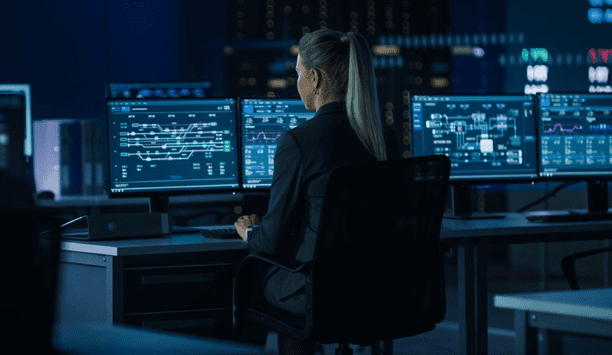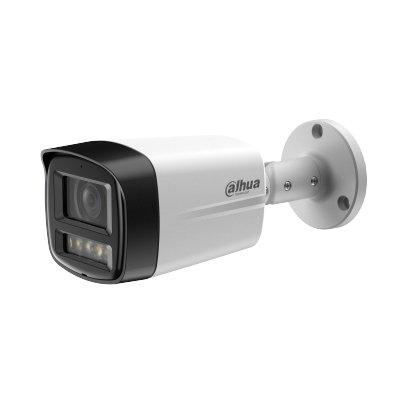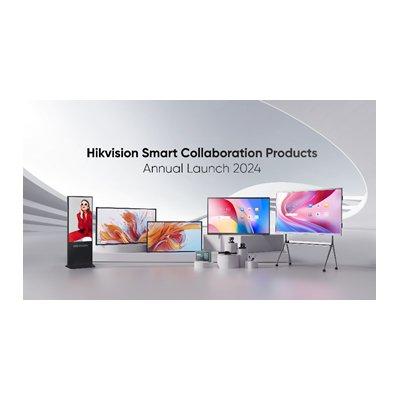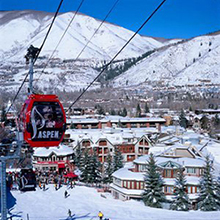 |
| AutoVu allows parking enforcement officers to enforce time-limit regulations without leaving the enforcement vehicle |
The city of Aspen, Colorado, at an elevation just shy of 8000 feet, is a popular ski and snow destination resort. It draws a large tourist population every year, including a number of world-famous celebrities. Though the city, a four-hour drive from Denver, is home to a mere 5200 residents, it holds a bed base for 25,000 and imports around 13,000 workers per day. With all of this activity, parking in Aspen is at a premium, and there is little space left to build.
The business challenge
Tim Ware is a veteran of the city's parking enforcement team, having served as the Director of the Department for the past 18 years. The Department oversees around 850 commercial on-street parking spaces in the city centre, a 340-space public parking garage and around 3000 residential parking spaces. Most of the commercial on-street spaces in the downtown area are managed with a pay-and-display system, with the remainder located in small pockets of unpaid spaces with time limits between 30 and 60 minutes. The parking garage is gated, and therefore mostly self-regulating. The greatest challenge to Mr. Ware's team, however, has been monitoring the residential parking spaces.
The popularity of the town coupled with the scarcity of parking has, over time, caused visitors to spill into the city's surrounding residential neighbourhoods in search of a place to leave their vehicles. In 1994, Mr. Ware implemented regulations on parking in residential zones that allowed visitors to park for a maximum of two hours. Tire chalking practices were employed to enforce this regulation.
Unfortunately, Mr. Ware found that people simply moved their vehicles every two hours, defeating the purpose of the limit, which was put in place to regulate congestion in the area. A no-re-park ordinance has since been instated (allowing visitors to park for two hours total in any given eight hour period).
Today, residential parking zones provide for three parking methods: free permits are provided to residents, and visitors can choose between paid day passes or free parking with a two hour limit. These new parking provisions rendered the practice of tire chalking obsolete. Chalk was too rudimentary a method for tracking vehicles, as the only information it could provide was whether a car had moved since originally parked. This method was not sophisticated enough to track vehicles for potential re-park infractions. The situation necessitated a system that encompassed a database, tracking cars throughout the day on a system-wide level, instead of just on a spot-by-spot basis.
It was at this point that Mr. Ware set out to find an improved solution to aid his enforcement officers in effectively carrying out their jobs.
End-user needs
It was estimated that between 400 and 800 cars were shuffling parking spots in the residential districts every day to beat the two-hour time limit, meaning that an average of 20% of the cars parked in the residential areas at any given time were in violation of the no-re-park ordinance. With a residential area approximately 12 blocks tall by 18 blocks wide, the three-person team allocated to Aspen's residential parking enforcement was not physically able to patrol the entire area in a day. Mr. Ware was in search of a system that would provide his team with the efficiency needed to canvas all of the residential spaces every day.
In order to evaluate his options, Mr. Ware issued an RFP (request for proposal) for solutions to help his department tighten their enforcement. He received a bid from Genetec with their AutoVu license plate recognition (LPR) system, as well as a bid from another company, but found his decision easy to make. He had already seen Genetec's solution at trade shows, and he took a trip to a neighbouring city in Colorado, which had a well-established installation of Genetec's LPR product, to see the platform in action. He was impressed with the platform's wide feature set and flexibility for integrations with other systems. He brought the solution before the City Council as a consent item, and after discussing in detail the intrinsic value this type of platform would provide, the bid was approved.
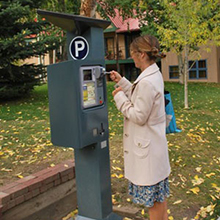 |
| The solution was integrated with Aspen's Verrus system for pay-by-phone parking in downtown and residential areas |
The perfect solution
AutoVu is the license plate recognition (LPR) system of the Security Center, Genetec's unified security platform. AutoVu allows parking enforcement officers to enforce time-limit regulations without leaving the enforcement vehicle. With specialised LPR cameras, AutoVu automatically reads surrounding vehicle plates, compares them to a database and alerts parking enforcement staff when they need to take action.
On the first pass, the officer selects the zone he is about to enforce, which contains pre-configured information such as the time limit as well as other operational parameters including a grace period. Once selected, the officer simply drives through the zone at full cruising speed, with the cameras and computer storing the license plate information in an on-board database. Later, on the second pass, the officers will be automatically alerted if a vehicle is in violation of the time-limit regulations.
Mr. Ware had the IT department install the system's support infrastructure, which is housed in a centrally located server. The installation of the AutoVu platform went smoothly, aided by the fact that the system replaced an entirely paper and chalk system so there was no data migration to address. Two Go-4 Interceptor parking enforcement vehicles were outfitted with fixed-mounted AutoVu Sharp cameras, and each vehicle was provided a touch-screen computer.
In addition, the solution was integrated with Aspen's Verrus system for pay-by-phone parking in downtown and residential areas to pull daily exemptions based on permit purchase into AutoVu. The system has also been integrated with T2 Systems, a fully-integrated Genetec technology partner, which provides software that allows the parking enforcement team to monitor and manage a database of long-term residential parking permits, as well as a database of all parking tickets. The enforcement team currently downloads all infraction ticketing information into the database at the end of the day from their handheld devices. They are transitioning shortly to new handhelds which will allow live communication between the handhelds and the database, transmitting live ticket and permit data throughout the day. "Genetec is very receptive to working with other companies, making integrations with other hardware or software exceedingly simple. This no-fuss integration capability was a primary concern when evaluating solutions - it is very important for a feature-rich platform to play nicely with our other systems, so we were pleased at how simple it was to implement these integrations," said Mr. Ware.
Training Mr. Ware's officers took a bit of time, since they were transitioning from a technology-free solution. But they picked up AutoVu's intuitive interface fairly quickly. "Now they won't let you take the system away from them," laughed Mr. Ware. "It's great in the dead of winter - they can stay cosy inside their vehicles and still get the job done."
Aspen's AutoVu system is primarily used to patrol the residential parking zones, however the job is done so efficiently now that the enforcement team is able to also occasionally run through the downtown pay-and-display parking areas as a precaution for locating scofflaw (vehicles with outstanding tickets). It is also very useful for monitoring the pockets of one-hour or 30-minute parking, with which the enforcement team previously had difficulty due to the logistics of orchestrating their patrols to accommodate staggered time limits.
The City of Aspen also has the national wanted vehicle database linked into their platform, ensuring that any rogue vehicles that show up in town will automatically sound an alarm. This allows the parking enforcement team to report the exact location to law enforcement. Though the parking garage is gated, the AutoVu system is also occasionally used to take inventory of the lot. Lastly, the system will automatically alarm on any vehicle that hasn't moved from a space in 72 hours, which puts it in violation of the abandoned vehicle ordinance, and allows the enforcement officers to generate a friendly reminder to the resident to move the vehicle to a new location.
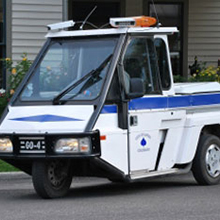 |
| The stored vehicle location data can be used for finding "lost" cars for visitors who have forgotten where they parked |
The benefits
Aspen's Parking Enforcement Department had designated the five by five grid of downtown blocks 'the red zone', and identified four residential zones moving outward from that centre. Before installing AutoVu, three officers were devoted to the red zone, sweeping it daily for expired display printouts (or lack of payment entirely). Approximately one and a half of the four residential zones could be properly patrolled in any given day, and throughout the week the officers would rotate, eventually getting to each residential parking spot once or twice per week. Since installing AutoVu, the residential parking enforcement team has dropped to two officers, and each space is patrolled 2-4 times per day. Where it used to take an hour to sweep one given area, it now takes five minutes. AutoVu has enabled a 900% increase in coverage, with less staff.
In addition, the scofflaw list in Aspen has been reduced to nearly zero since implementing this technology, and the number of bootable cars halved. "We now have a photograph of any cited car, so there are no more 'I wasn't there' excuses to throw around. Along with the GPS coordinates, we have detailed images down to the wheels and valve stems of the vehicle that can prove the vehicle has not moved - but you almost never even have to take it that far anymore. You just can't argue with this system because the accuracy is dead on and undisputable," said Mr. Ware. "This is one the best tools I have ever bought." Since use of AutoVu began, Mr. Ware's department has even helped to apprehend criminals when the system alerted them to a warranted vehicle and they were able to pass the location on to police.
The single best thing that AutoVu has provided the Aspen team is a gross increase in efficiency. Each alarm issued by the system requires its operator to take action (generally to issue a citation) or list the reason for not doing so. At the end of each day, Mr. Ware can easily access a hit report, summarizing statistics on citations and vehicles in violation of various ordinances. Visitors who wish to purchase a day pass for parking in residential areas can pay by cell phone, automatically sending information to the AutoVu database to prevent it from alarming after the two-hour period expires. Mr. Ware can also track the efficiency of the routes his enforcement team uses by printing a route report. He can even view the location of his team's vehicles remotely from his office, enforcing the rule that the vulnerable and expensive vehicles not be left unattended anywhere other than at their secured parking garage at the office.
The data collected by the system has also proven invaluable after the fact. In addition to the obvious, such as pulling up evidence in infraction disputes and route management to ensure all areas are equally enforced, the data has proven useful in myriad unexpected ways. With all the information collected, it is easy for Aspen's Parking Enforcement Department to build lists of data for nearly any purpose, and over time Mr. Ware has found the following uses:
The police have at times requested that a record be generated indicating whether a certain car was parked in a neighbourhood during a certain time period.
"We now have a photograph of any cited car, so there are no more 'I wasn't there' excuses to throw around" |
Reports are occasionally requested to count vehicles for development purposes, for example by calculating average parking density in a neighbourhood in which a new commercial development has been proposed.
The system can be used to conclusively disprove any accusations made by residents that neighbourhoods are not patrolled, by producing reports of patrolling frequency in a given area.
The stored vehicle location data can be used for finding "lost" cars for visitors who have forgotten where they parked. By plugging in a license plate number, AutoVu will locate the vehicle from patrol records. During the summer, this is required two to three times per week.
These are but a few of the unanticipated uses Mr. Ware has discovered for the AutoVu backend database within the Security Center unified security platform.
Moving forward, Mr. Ware is evaluating a T2 Systems module that would allow the software to load on the tablets used for AutoVu, eliminating the need for his officers to carry ticketing handhelds. In addition, Aspen currently issues around 3500 residential parking permits per year, and will soon be able to do away with issuing physical permits in favour of simply loading the permitted license plate data into AutoVu. Mr. Ware is also looking into installing an additional camera at a parking pass kiosk that issues day permits for carpooling vehicles, allowing them to park in residential areas and dedicated spaces downtown. The attendant at the kiosk currently issues paper slips, but by placing an LPR camera at the kiosk, AutoVu would be able to interpret license plates upon issuance of a day permit and then send the information directly to the database.
"I couldn't be happier with the results. This system does exactly what I set out to do. Every goal I had for the system, it fulfilled. I don't know what else to say - I've been very, very pleased," said Mr. Ware.








